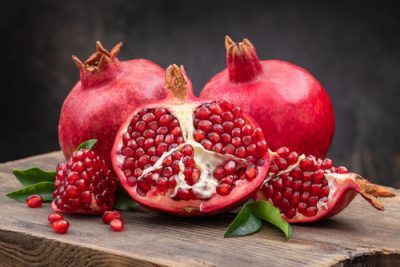The grocery shopping experience has undergone a dramatic transformation as specialized menopause nutrition products move from niche health stores to mainstream supermarket shelves. This revolutionary shift represents a seismic change in how the food industry addresses women’s health needs, acknowledging that nearly 50 million American women are currently navigating menopause and perimenopause with limited nutritional support options.
For decades, women experiencing menopausal symptoms were relegated to the supplement aisle or specialty health stores to find products designed for their unique nutritional needs. The mainstream food industry largely ignored this massive demographic, treating menopause as a medical condition rather than a natural life transition that could be supported through targeted nutrition. This oversight left millions of women struggling to find convenient, accessible solutions for managing symptoms like hot flashes, mood swings, sleep disruption, and weight gain.
The emergence of menopause-specific products in mainstream grocery stores signals a fundamental shift in both consumer demand and industry recognition. Major food manufacturers have finally awakened to the reality that menopausal women represent a powerful consumer segment with specific needs and substantial purchasing power. This demographic is no longer willing to accept one-size-fits-all solutions when it comes to nutrition and wellness products.
The mainstream adoption of menopause nutrition products reflects broader cultural changes in how society views aging and women’s health. The stigma surrounding menopause is gradually diminishing as more women openly discuss their experiences and demand better solutions. This cultural shift has created market opportunities that innovative food companies are rushing to fill with products specifically formulated to address hormonal changes and their associated symptoms.
Product 1: hormone-balancing protein powders
The first category of revolutionary products hitting mainstream shelves includes hormone-balancing protein powders specifically formulated for menopausal women. These specialized formulations go far beyond traditional protein supplements by incorporating ingredients known to support hormonal balance and address common menopausal concerns like muscle loss, weight gain, and energy fluctuations.
These innovative protein powders typically contain plant-based proteins combined with adaptogens, phytoestrogens, and targeted vitamins and minerals. The protein content addresses the increased protein needs that many women experience during menopause, when muscle mass naturally begins to decline. Higher protein intake can help maintain muscle tissue while supporting healthy metabolism and weight management.
Adaptogenic herbs like ashwagandha, maca root, and rhodiola are frequently included in these formulations to help the body adapt to stress and support adrenal function. These ingredients work synergistically with the protein to provide comprehensive support for energy levels, mood stability, and overall resilience during hormonal transitions.
Many of these products also incorporate collagen peptides to address skin changes that occur during menopause. The combination of protein and collagen provides comprehensive support for maintaining muscle mass while addressing cosmetic concerns that many women experience during this life stage.
The convenience factor cannot be overstated, as these products allow women to address multiple concerns with a single daily shake or smoothie addition. Major grocery chains now dedicate entire sections to these specialized protein products, making them as accessible as traditional sports nutrition supplements.
Product 2: phytoestrogen-rich functional snacks
The second wave of mainstream menopause products includes functional snacks specifically designed to deliver phytoestrogens and other hormone-supporting compounds in convenient, portable formats. These products recognize that many women prefer to address hormonal symptoms through food rather than supplements, making nutrition support feel more natural and integrated into daily routines.
Soy-based snacks have been reformulated and rebranded to specifically target menopausal women, moving beyond generic health claims to focus on hormonal balance and symptom management. These products often combine different types of soy with complementary ingredients to maximize their phytoestrogenic effects while improving taste and texture.
Flaxseed-based products represent another major category, with everything from crackers to energy bars incorporating high levels of lignans, which are converted to phytoestrogens in the body. These products appeal to women seeking plant-based solutions for hormonal support while providing convenient snacking options that fit into busy lifestyles.
Nut and seed combinations specifically formulated for menopause provide concentrated sources of healthy fats, protein, and hormone-supporting compounds. These products often feature pumpkin seeds, sunflower seeds, and specific nuts known for their mineral content and hormonal benefits.
The packaging and marketing of these products has evolved to speak directly to menopausal women, using language and imagery that acknowledges their specific needs and experiences. This targeted approach helps women easily identify products designed for their life stage while normalizing discussions about menopause and its nutritional implications.
Product 3: cooling beverages for hot flash relief
The third category of revolutionary products includes specially formulated beverages designed to provide cooling relief and nutritional support for women experiencing hot flashes and night sweats. These innovative drinks combine hydration with targeted ingredients known to help regulate body temperature and support the body’s cooling mechanisms.
Herbal tea blends specifically created for menopause have moved from health food stores to mainstream grocery aisles, featuring combinations of sage, red clover, black cohosh, and other traditionally used herbs. These products are now packaged and marketed with the same sophistication as premium tea brands, making them appealing to a broader consumer base.
Electrolyte-enhanced waters and sports drinks have been reformulated to address the specific needs of menopausal women who may experience increased sweating and fluid loss. These products often include additional minerals like magnesium and potassium that can help with muscle cramps and sleep quality.
Functional smoothie bases and ready-to-drink options incorporate ingredients like cucumber, mint, and coconut water for their natural cooling properties. These products provide convenient options for women seeking immediate relief from hot flashes while delivering additional nutritional benefits.
Cold-pressed juices featuring ingredients specifically chosen for their hormone-balancing properties have gained popularity among health-conscious menopausal women. These products often combine fruits and vegetables known for their phytonutrient content with herbs and spices that support hormonal health.
Product 4: bone-supporting fortified foods
The fourth wave of mainstream menopause products focuses on bone health support through fortified foods that address the increased risk of osteoporosis during and after menopause. These products recognize that declining estrogen levels significantly impact bone density and that dietary intervention can play a crucial role in maintaining skeletal health.
Calcium and vitamin D fortified products have been specifically reformulated and marketed for menopausal women, moving beyond basic fortification to include additional bone-supporting nutrients like vitamin K2, magnesium, and boron. These comprehensive formulations provide more complete nutritional support than traditional fortified foods.
Dairy alternatives fortified with plant-based calcium sources appeal to women who may be avoiding dairy due to digestive changes that can occur during menopause. These products often incorporate algae-based calcium and other marine-derived minerals that may be better absorbed than traditional calcium supplements.
Fortified cereals and grain products specifically designed for mature women provide convenient breakfast options that deliver significant amounts of bone-supporting nutrients. These products often feature whole grains combined with targeted vitamins and minerals in formulations designed to support overall health during menopause.
Protein-rich foods fortified with bone-supporting nutrients provide dual benefits for women concerned about both muscle loss and bone density. These products recognize the interconnected nature of musculoskeletal health and provide comprehensive nutritional support.
Product 5: mood-supporting functional foods
The fifth category includes functional foods specifically formulated to support mood stability and mental health during menopause, addressing the emotional and psychological symptoms that many women experience during hormonal transitions. These products incorporate ingredients known to support neurotransmitter function and overall mental well-being.
Dark chocolate products enhanced with additional mood-supporting compounds have found particular success in mainstream markets. These products combine the natural mood benefits of chocolate with ingredients like L-theanine, omega-3 fatty acids, and B vitamins to provide more comprehensive mental health support.
Fermented foods specifically marketed for menopause incorporate probiotics strains that may support both digestive health and mood regulation. Research connecting gut health to mental health has driven interest in these products among women seeking natural approaches to mood management during menopause.
Omega-3 enriched foods have been reformulated and rebranded to specifically target menopausal women, emphasizing their benefits for brain health, mood stability, and inflammation reduction. These products make it easier for women to increase their omega-3 intake through regular food consumption rather than supplements.
Adaptogenic food products incorporating stress-reducing herbs and compounds have gained mainstream acceptance as more women seek natural solutions for managing the psychological challenges of menopause. These products often combine traditional adaptogens with familiar food formats to increase accessibility and compliance.
Product 6: sleep-promoting evening foods
The sixth revolutionary category focuses on evening foods and bedtime snacks specifically designed to promote better sleep quality for menopausal women. Sleep disruption is one of the most common and challenging symptoms of menopause, driving demand for natural, food-based solutions that can be incorporated into nightly routines.
Magnesium-rich evening snacks have been specifically formulated to support muscle relaxation and sleep quality. These products often combine nuts, seeds, and other naturally magnesium-rich foods with additional sleep-promoting ingredients like chamomile or passionflower.
Tryptophan-containing foods designed for evening consumption provide natural support for serotonin and melatonin production. These products help women support their body’s natural sleep cycles through nutrition rather than relying solely on sleep aids or supplements.
Herbal evening teas and warm beverages specifically blended for menopausal women combine traditional sleep-promoting herbs with ingredients that address other common nighttime symptoms like hot flashes and restless legs. These products provide multi-symptom relief in convenient, enjoyable formats.
Low-sugar evening snacks designed to prevent nighttime blood sugar fluctuations help address sleep disruptions caused by hormonal changes affecting glucose metabolism. These products recognize the connection between blood sugar stability and sleep quality during menopause.
Product 7: energy-boosting morning formulations
The seventh category includes morning foods and beverages specifically formulated to address the fatigue and energy fluctuations that many women experience during menopause. These products provide sustained energy support while addressing underlying nutritional deficiencies that may contribute to menopausal fatigue.
B-vitamin enriched breakfast products provide comprehensive support for energy metabolism and nervous system function. These products often combine multiple B vitamins with other energy-supporting nutrients like iron and CoQ10 to address the multifaceted nature of menopausal fatigue.
Adaptogenic morning beverages incorporating energizing herbs like ginseng, rhodiola, and maca provide natural energy support without the jitters associated with excessive caffeine consumption. These products appeal to women seeking sustained energy rather than quick stimulant effects.
Protein-rich breakfast options specifically designed for menopausal women provide sustained energy while supporting muscle maintenance and healthy weight management. These products often incorporate slow-digesting proteins combined with healthy fats to provide steady energy throughout the morning.
Iron-enriched products address the potential for iron deficiency that can contribute to fatigue in menopausal women. These products often use chelated or heme iron sources that are better absorbed and less likely to cause digestive upset than traditional iron supplements.
Product 8: digestive health solutions
The eighth wave of products addresses the digestive changes that many women experience during menopause, including slower metabolism, changes in gut bacteria, and increased sensitivity to certain foods. These products provide targeted support for maintaining digestive health during hormonal transitions.
Prebiotic and probiotic foods specifically formulated for mature women incorporate bacterial strains and fiber types that support healthy digestion and may influence hormone metabolism. These products recognize the important role that gut health plays in overall well-being during menopause.
Digestive enzyme-enhanced foods help address the decreased enzyme production that can occur with age and hormonal changes. These products make it easier for women to digest foods that may have become problematic during menopause while maintaining nutritional variety in their diets.
Fiber-rich products specifically designed for menopausal women provide digestive support while addressing concerns about weight management and blood sugar control. These products often combine different types of fiber to provide comprehensive digestive benefits.
Anti-inflammatory foods enhanced with additional compounds support digestive healing while addressing the increased inflammation that can occur during menopause. These products recognize the connection between inflammation, digestive health, and overall menopausal symptoms.
Product 9: weight management solutions
The ninth category focuses on foods specifically formulated to support healthy weight management during menopause, when hormonal changes can make weight control more challenging. These products address the metabolic changes that occur with declining hormone levels while providing satisfying, nutritious options.
Metabolism-supporting foods incorporate ingredients like green tea extract, chromium, and other compounds known to support healthy metabolism. These products help women address the metabolic slowdown that commonly occurs during menopause through nutritional intervention.
Portion-controlled products designed for menopausal women provide convenient options for managing caloric intake while ensuring adequate nutrition. These products often feature higher protein content and lower glycemic impact to support healthy weight management.
Satiety-enhancing foods combine protein, fiber, and healthy fats in formulations designed to promote feelings of fullness and reduce cravings. These products address the appetite changes and cravings that many women experience during hormonal transitions.
Blood sugar stabilizing products help address the insulin resistance that can develop during menopause and contribute to weight gain. These products typically feature low glycemic ingredients combined with nutrients that support healthy glucose metabolism.
Product 10: skin and beauty foods
The tenth revolutionary category includes foods specifically formulated to support skin health and beauty from within during menopause. These products address the skin changes that occur with declining hormone levels while providing nutritional support for maintaining healthy, vibrant skin.
Collagen-supporting foods combine collagen peptides with vitamin C, biotin, and other nutrients known to support skin structure and appearance. These products provide comprehensive support for maintaining skin elasticity and reducing visible signs of aging during menopause.
Antioxidant-rich beauty foods incorporate high levels of vitamins A, C, and E along with other compounds that protect against free radical damage and support skin cell regeneration. These products recognize the increased oxidative stress that can occur during hormonal transitions.
Hydrating foods with ingredients like hyaluronic acid and ceramides provide internal moisture support to address the skin dryness that many women experience during menopause. These products offer an alternative to topical skincare by supporting hydration from within.
Anti-inflammatory beauty foods incorporate omega-3 fatty acids and other compounds that reduce inflammation and support healthy skin function. These products address the inflammatory processes that can accelerate skin aging during menopause.
Product 11: cardiovascular support foods
The eleventh category addresses the increased cardiovascular risk that occurs after menopause when the protective effects of estrogen decline. These products provide targeted nutritional support for maintaining heart health through this critical life transition.
Heart-healthy fats enhanced with additional cardiovascular supporting compounds provide comprehensive support for maintaining healthy cholesterol levels and cardiovascular function. These products often combine omega-3 fatty acids with plant sterols and other heart-protective ingredients.
Blood pressure supporting foods incorporate potassium, magnesium, and other minerals known to support healthy blood pressure levels. These products recognize the increased risk of hypertension that can occur during and after menopause.
Cholesterol-supporting products combine soluble fiber with plant compounds known to support healthy cholesterol metabolism. These products provide natural alternatives to pharmaceutical interventions for women with elevated cholesterol levels during menopause.
Circulation-supporting foods incorporate ingredients like L-arginine and other compounds that support healthy blood flow and cardiovascular function. These products address the circulatory changes that can occur with declining hormone levels.
Product 12: cognitive support formulations
The twelfth and final category focuses on foods designed to support cognitive function and brain health during menopause, addressing concerns about memory, focus, and mental clarity that many women experience during hormonal transitions.
Brain-boosting foods incorporate omega-3 fatty acids, antioxidants, and other nutrients known to support cognitive function and protect against age-related cognitive decline. These products provide nutritional support for maintaining mental sharpness during menopause.
Memory-supporting products combine ingredients like phosphatidylserine, acetyl-L-carnitine, and other compounds that support neurotransmitter function and cognitive performance. These products address the brain fog and memory concerns that are common during menopause.
Focus-enhancing foods incorporate adaptogens and other ingredients that support mental clarity and concentration. These products provide natural alternatives to stimulants for women experiencing cognitive challenges during hormonal transitions.
Neuroprotective foods rich in antioxidants and anti-inflammatory compounds provide long-term support for brain health and cognitive aging. These products recognize the importance of protecting brain function during the vulnerable period of hormonal transition.
The mainstream adoption of these specialized menopause nutrition products represents a watershed moment in women’s health and food industry recognition. This transformation acknowledges that menopause is not a medical condition to be endured but a natural life transition that can be supported through targeted nutrition and lifestyle approaches. As these products become increasingly available and sophisticated, women have unprecedented access to convenient, effective solutions for managing menopausal symptoms and maintaining optimal health during this critical life stage.
















